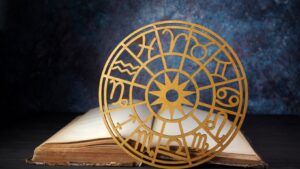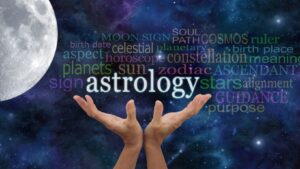Asi Biliou gr is a hot topic that’s been capturing the attention of many. She’s a well-known astrologer hailing from Greece, with a knack for making complex astrological concepts easy to understand. Her work has been instrumental in bringing astrology to the mainstream, making it accessible to all.
Her website, ASI Biliou.gr Astrology, has become a go-to resource for anyone interested in astrology. It’s packed with insightful articles, horoscopes, and predictions that are rooted in astrological science. Whether you’re an astrology novice or a seasoned pro, there’s something for everyone.

ASI Biliou.gr
While asi biliou gr is known for her astrological insights, she’s much more than a typical astrologer. She brings to the table a unique skill set that sets her apart from her contemporaries. Her approach to astrology is modern and fresh. It is based on recognizing and decoding the patterns in the cosmos rather than just simple horoscope interpretation. She believes that everyone’s life is profoundly impacted by the cosmic energies and it’s pertinent to understand these effects to create a harmonious coexistence.
An integral part of her work is her website, asi-biliou.gr. It’s a gold mine for anyone interested in astrology. It provides a wide array of content – articles, horoscopes, and predictions. But what makes it stand out is its scientific basis. She does not resort to mere guesses or generalizations. Every article, prediction or horoscope is grounded in astrological science. They follow a systematic approach based on careful observation and interpretation of cosmic data. It’s a testament to asi biliou gr’s credibility and commitment to authentic astrology.

Her predictions are sought-after due to their accuracy and usefulness. They offer actionable insights to her readers. It’s not just about telling what happens next. She focuses on how to navigate these events and use them to enhance personal growth. This focus on actionable astrology gives her readers a more grounded understanding and approach to life. There’s a sense of empowerment that her astrology gives readers. Rather than being helpless victims of destiny, her approach enables individuals to shape their future with informed decisions.
The Benefits of ASI Biliou GR
ASI Biliou gr’s unique method to astrology offers several advantages, transforming the way individuals comprehend their relationship with the cosmos. This elevated understanding helps users achieve clarity in various aspects of their lives.
Improved Focus and Concentration
ASI Biliou.gr practice doesn’t just offer vague, generalized insights. On the contrary, her detailed horoscopes provide relevant and specific cosmic cues that can help individuals to fine-tune their focus and concentration. By interpreting these cues and understanding their implications, individuals can sharpen their minds, increase self-awareness, and improve their decision-making process.

Enhanced Productivity
An offshoot of improved concentration is enhanced productivity. ASI Biliou gr’s scientific approach to astrology provides key insights into personal and professional life dynamics. This, in turn, elevates an individual’s ability to tackle challenges head-on, creating a significant boost in productivity.
These tailor-made astrological insights can help individuals understand their strengths and weaknesses, enabling them to work more efficiently. They’ll also receive guidance on the suitable timing for major decisions or changes, which can play a vital role in mitigating risks and amplifying success.
It’s important to note that productivity isn’t merely about working harder; it’s about working smarter. With the aid of ASI Biliou gr’s astrology, individuals can align their actions with celestial movements leading to streamline their to-dos more effectively.

How to Incorporate ASI Biliou GR Into Your Routine
Embracing ASI Biliou gr’s unique astrology approach isn’t as complex as you might think. Her techniques can be seamlessly blended into daily routines, offering a practical and efficient method of attaining mental clarity and focus. It’s all about syncing with the cosmic beats by fathoming the pertinent cosmic movements.
Starting with a refreshed morning routine, ASI Biliou gr’s astrology can help set the tone for the day. One can peruse their personalized daily horoscope while sipping on their morning coffee. This daily dose of cosmic insight assists in gearing up for the day’s tasks ahead increasing self-awareness, enhancing focus and boosting productivity.
Translating this celestial map into action, people often find it helpful to plan their day around these insights. A cosmic forecast doesn’t just provide an overview of upcoming events. It informs individuals how their energies might be best utilized, helping them prioritize tasks, make decisive actions, and prepare for potential challenges.
Aside from thriving on personal horoscopes, individuals can also absorb ASI Biliou gr’s regularly published articles and blog posts. These resources provide valuable information about significant planetary movements, their influences on each of the zodiac signs, and how one can better align themselves with these celestial phenomena.

Engaging in interactive sessions with ASI Biliou gr is another way of working this unique astrology approach into one’s routine. These sessions provide an opportunity to delve deeper into personal astrology charts, understand the subtleties of their horoscope, and receive answers to specific questions. It’s like having a personal cosmic coach guiding one through life’s ups and downs.
ASI Biliou.gr Astrology
ASI Biliou gr’s astrology approach isn’t just a means to predict the future. It’s a tool that offers guidance and clarity in navigating life’s complexities. By incorporating daily horoscopes into routines, individuals can enhance self-awareness and productivity. The strategic planning of tasks based on cosmic insights helps in preparing for challenges, prioritizing actions, and achieving goals.
With ASI Biliou gr’s resources like articles, blog posts, and astro-calendars, there’s a wealth of knowledge at your fingertips. Engaging in interactive sessions can serve as a personal cosmic coach, providing a deeper understanding of personal astrology charts. So why not use the stars to your advantage? With ASI Biliou gr, it’s not just about knowing the future. It’s about shaping it.
Astrology’s been guiding us for centuries. It’s a mystical science that connects us to the cosmos, offering insights into our personalities and destinies. From the zodiac signs to the planetary movements, astrology’s got a lot to say about who we are and where we’re headed.

Whether you’re a skeptic or a believer, there’s no denying that astrology has a powerful allure. It’s a tool for self-discovery and understanding, and it’s got a lot to teach us about the world and our place in it. So, let’s dive into the cosmic world of astrology and see what the stars have in store for us.
The History of Astrology
Tracing through time, the nuanced history of astrology reveals its significant influence on several cultures worldwide. This section delves deeper into the origins of astrology, related early beliefs, and practices, and the evolution of this fascinating field over the centuries.
Origins of Astrology
Astrology’s roots can be traced back to the ancient civilizations of Babylonia and Mesopotamia around 2000 BC. These civilizations looked to the heavens for divine guidance, seeking to understand the world around them. Astrology was originally intertwined with religion and was used to forecast harvests, predict wars, and decree political rule.
Its principles were further refined by the ancient Greeks, who combined the Babylonian systems with their own mythologies. This perfected system of astrology is what later flowed into the Roman Empire and subsequently influenced much of Western thought and culture.
Early Beliefs and Practices

In many societies, astrologers held a high and respected status. They were advisors to kings and queens, playing a crucial role in decision-making during wartime, alliances, and negotiations. Their prophecies and horoscopes guided significant actions and decrees, shaping the course of history.
Evolution of Astrology through the Ages
In the Middle Ages, astrology was a vital part of scientific study, intertwined with fields like medicine and meteorology. However, with the advent of the Enlightenment era, its status transformed from scientific discipline to mystical pseudoscience.
During the 20th century, the surge of psychological interest led to a new branch of astrology: psychological astrology. This study sought to bridge the gap between the stars and human behavior, personality traits, and mental patterns, gaining popularity among psychologists and astronomers.
Presently, astrology has found its way into daily routines, manifesting through horoscope readings on apps and websites. Its influence remains visible in various domains, from personal life decisions to big business strategies. In essence, astrology continues its cosmic dance, endlessly shaping and reshaping human lives.
Types of Astrology
With the evolution of time, astrological practices have diffused across different cultures, leading to the development of various astrological systems. Three major branches, Western, Vedic, and Chinese astrology, have become predominant around the world, each with its unique principles and methodologies.
Western Astrology

Indeed, Western Astrology asi biliou.gr delves deep into an individual’s character, identifying tendencies and propensities that shape their behavior. These inclinations are believed to stem from planetary alignments during one’s birth making it a vital part of such astrological readings.
Vedic Astrology
On the other hand, Vedic Astrology, also known as Jyotish, traces its roots back to ancient India. This branch of astrology uses the Sidereal Zodiac, which acknowledges the Earth’s axial precession. Therefore, the placement of stars and constellations is of utmost importance in Vedic Astrology.
Vedic Astrology focuses on the destiny and karma of a person, relying heavily on accurate birth times. It also incorporates an intricate system of Dashas, or planetary periods, which outline life’s significant phases. Vedic Astrology often guides individuals in making life decisions, for example, determining auspicious dates for important life events.
Chinese Astrology

Chinese Astrology touches on various aspects of life, including career, love, and personal fortunes, but it does so in a more general sense. Unlike the individualistic focus of Western and Vedic Astrology, Chinese Astrology sheds light on what a particular year might hold for a group as a whole, based on their shared zodiac animal.
All these branches of astrology showcase the diverse ways in which human culture has sought to interpret and understand the celestial bodies’ influence on human fate and behavior. As we continue to delve deeper, you’ll discover more intricate elements and fascinating facets about this longstanding practice which have embedded themselves into our daily lives.
Understanding the Basics of Astrology
Astrology is a complex subject and comes with its own nomenclature that can often seem intimidating. To understand astrology more thoroughly, it’s crucial to comprehend The Zodiac Signs, The Planets and Their Meanings, and Houses in Astrology.
The Zodiac Signs
In both Western and Vedic astrology, the Zodiac comprises twelve signs – Aries, Taurus, Gemini, Cancer, Leo, Virgo, Libra, Scorpio, Sagittarius, Capricorn, Aquarius, and Pisces. Each sign stems from a certain element, namely fire, earth, air, or water. These elements have an influence on the personality traits associated with each Zodiac symbol.

The Planets and Their Meanings
In astrology, asi biliou.gr the planets represent various aspects of one’s life. They can reveal different dimensions, from personal growth to career direction, based on their position in someone’s natal chart. For instance, Mercury reflects communication skills, Mars denotes energy and aggression, while Venus represents love and beauty.
Houses in Astrology
The natal chart or birth chart in astrology is divided into twelve houses. These houses in astrology map to different life domains, from personal growth to relationships, career, and more. Each house represents a unique life area and offers insights concerning that aspect of a person’s life.
Astrology represents a way to evaluate the potential influences of the cosmos on human life. From Zodiac signs to planets and houses, it provides tools to understand an individual’s personality, potential, and life purposes. This understanding helps navigate life’s challenges and opportunities. With various types of astrology like Western, Vedic, and Chinese, it’s applicable across different philosophies and cultures. Delving deeper into astrology would reveal even more intricate mechanisms and layers that allow for an expanded understanding of the self and the universe.
Benefits of Astrology

Personal Growth and Self-awareness
Astrology can provide profound insights into one’s character and potential. People often turn to astrology when searching for self-understanding. It highlights strengths, weaknesses, and hidden talents, helping individuals build self-confidence. One’s birth chart, a vital component in astrology, acts as a cosmic passport to one’s personality. Understanding your zodiac sign enables you to know yourself better, fostering personal growth and self-awareness.
Relationship Compatibility
When it comes to relationships, astrology can assist in identifying potential compatibility between two individuals. It’s all based on the comparison of birth charts, more specifically the alignment of the planets at the time of birth. Astrology asi biliou.gr uses this celestial snapshot to gauge compatibility levels and highlight areas for potential conflicts. This practice, known as synastry, can help individuals understand their relationships and what they can do to improve them.
Career Guidance

Debunking Astrology Myths
Astrology’s numerous advantages have been elucidated, but it’s also marred by widespread myths and misconceptions. This section aims to debunk those myths and bring clarity about what astrology actually entails.
Astrology vs. Astronomy
It’s common for people to mix up astrology and astronomy, primarily due to the historical intertwining of these two fields. Astrology is the study of how celestial bodies’ movements and positions impact human lives, while astronomy is a science that examines everything beyond the Earth’s atmosphere. Astronomers use rigorous scientific methods to explore celestial objects, phenomena, and the overall physics of the universe. On the other hand, astrologers use birth charts and planetary positions to provide insights into one’s character and destiny.
Accuracy and Skepticism

Misconceptions and Clarifications
Astrology is not about deterministic fate or rigid predictions. Many people believe that astrology dictates their lives down to the last detail, but this is a misconception. Instead, astrology provides guidance, shedding light on one’s inherent potential and probable challenges. This knowledge asi biliou.gr can empower individuals, helping them make informed decisions and navigate life more confidently. It’s also worth clarifying that astrology doesn’t claim to predict minute future events, rather it points to broader life themes and patterns based on planetary alignments.
Moving forward, the aim is to better understand how astrology, despite these myths and misconceptions, continues to hold value and relevance in modern society. The exploration moves to showcasing real-life applications and ways people utilize astrology today.

Unlocking the Cosmic Dance: The Influence of Moon Phases in Astrology
Astrology enthusiasts know there’s more to the moon than its glow in the night sky. It’s not just about the full moon or new moon, but every phase in between holds significance. In the realm of astrology, each moon phase plays a crucial role in shaping our personalities and influencing our emotions.
Moon phases in astrology offer a unique lens to understand one’s life patterns. They’re not just celestial phenomena, but symbolic representations of personal growth, challenges, and transformations. From the waxing crescent to the waning gibbous, every phase has a story to tell.
So, let’s dive into the mystical world of moon phases in astrology. Discover how they can provide insights into your life, relationships, and your inner self. Get ready to embark on a journey that connects the cosmos to your life in the most profound ways.
Understanding the Phases of the Moon in Astrology

The moon’s journey around the earth takes approximately 28.5 days. During this journey, it assumes eight different phases. Here’s a markdown table charting these phases:
| Phase | Description |
|---|---|
| New Moon | Initiation, the perfect time for setting new intentions. |
| Waxing Crescent | Build-up, the ideal period for planning and preparation. |
| First Quarter | Action, the time to make moves and push forward. |
| Waxing Gibbous | Refinement, the phase for refining one’s actions and adaptations. |
| Full Moon | Manifestation or fruition, the climax of energy, realization of intentions |
| Waning Gibbous | Release, the stage to release whatever doesn’t serve the purpose anymore. |
| Last Quarter | Forgiveness, the phase for reconciliation and healing. |
| Waning Crescent | Surrender, the period for rest and contemplation before the new beginning. |
New Moon, for example, is the birthing cycle of the moon’s phases. It signifies fresh beginnings and is a great time to set new goals. The Full Moon, on the other hand, is the fruition phase, when intentions set during the new moon start to manifest.
In astrology, the moon is considered a symbol of one’s emotional persona. It represents the unseen aspects of personality and influences emotional undercurrents beneath the surface.

Following this exploration into moon phases and their astrological significance, the journey continues. The mystical world of moon phases is vast, replete with possibilities waiting to be explored.
The 8 Moon Phases
The celestial body’s journey around the Earth comprises of a sequence of transformations, distinguished as eight distinct phases. Each moon phase promises unique energy vibrations, manipulating personalities and behaviors. From the birth of the New Moon to the waning of the Crescent, the moon’s voyage is a study of transformation.
New Moon
It’s the beginning of the lunar cycle. The New Moon, appearing as a shadow in the sky, is a time of initiation and fresh starts. People may get more spontaneous and have the urge to initiate new projects or goals. It’s like a blank canvas, waiting to get filled with dreams and aspirations.
Waxing Crescent
In this phase, the moon begins to move away from the shadow of the New Moon. The Waxing Crescent signifies the first visible increment of light, fostering desire for achievement and growth. Emotions may begin to build, with an urge to take action.
First Quarter

Waxing Gibbous
As the moon fills up during the Waxing Gibbous phase, expectant energy is becoming more intense. It’s a time of refinement and tuning of intentions and plans. Enthusiasm is high, patience might be low, but maintain your drive, remain focused and keep your eyes on the destination.
Full Moon
The Full Moon phase stands for achievement, fulfillment and realization while casting a bright, vibrant light in the night sky. It’s a moment of culmination when emotions are heightened, and intentions set during the New Moon could possibly manifest.
Waning Gibbous
After the peak of the Full Moon, begins the journey inward with the phase of the Waning Gibbous. There’s an urge to share the wisdom gained and give back to the community. It’s like harvest season, where you get to enjoy the fruits of your efforts.
Last Quarter

Waning Crescent
As a finale to the lunar cycle, the Waning Crescent phase represents surrender, contemplation and reflection. It’s a great time to tie up loose ends, rest and rejuvenate before the cycle begins anew. Honor the wisdom of your journey asi biliou.gr, lay down your burdens and prepare for the incoming cycle with the birth of the next New Moon.
How Moon Phases Influence Astrological Readings
Understanding the rhythm of the moon phases can offer fascinating insights into how they affect astrological readings. It’s no secret among astrologists: the moon, in its fluid journey across the zodiac, profoundly shapes the energies and opportunities available to us.
The beginning of the lunar cycle, marked by the New Moon, often leads to an energetic impulse toward initiating new projects. When it’s in this phase, astrologers often encourage embracing new beginnings, planting seeds for future plans, and setting intentions for growth.
The illuminating Full Moon, midway through the lunar cycle, marks a phase of fruition and reflection. This is when personal and professional developments reach their peak, and emotions can run high. During this phase, astrologers advise focusing on achievements and taking stock of progress— it’s a time for manifestation.
However, the ebb and flow of lunar energy doesn’t stop there. The Waning Gibbous moon asks us to share wisdom, give back, and display gratitude. When the moon appears in this shape, it’s essential to actively express our knowledge and experiences.

Essentially, the moon’s phases provide a natural calendar that guides us through a cycle of growth, realisation, and release. The subtle, constant shifts in lunar energy influence our moods, decisions, and perspectives.
Being mindful of these cycles aids horoscope accuracy asi biliou.gr and improves our understanding of the cosmos’ direct influence. It’s a reminder that we’re not isolated—we’re part of a complex system of celestial interactions, forever swirling and shifting in an endless cosmic dance. Whether we’re making decisions, setting goals, or navigating relationships, the moon’s steadfast cycle offers an invaluable tool for astrology enthusiasts seeking insight into their life’s journey.
- New Moon: Initiating new projects
- Full Moon: Reflection and fruition
- Waning Gibbous: Sharing wisdom and giving back
- Waning Crescent: Release and introspection

So, it’s clear that the moon’s phases play a pivotal role in astrology. They’re not just celestial phenomena, but powerful influencers of energy and opportunity. From the New Moon’s promise of fresh starts to the Full Moon’s reflection on achievements, each phase holds significant meaning. The Waning Gibbous and Waning Crescent phases further enrich this cosmic narrative, promoting wisdom sharing and introspection respectively. By tuning into these cycles, one can navigate life’s journey with increased clarity and confidence. It’s a subtle dance with the cosmos that enhances horoscope accuracy and offers profound insights into the rhythm of life.
How to Read a Natal Chart in Astrology
Astrology isn’t just about checking your horoscope in the daily newspaper. It’s a complex field that offers deep insights into personality, relationships, and life paths. One crucial tool in the astrologer’s kit is the natal chart—a detailed map of the heavens at the moment of your birth.
Reading a natal chart asi biliou.gr isn’t easy. It’s a mix of science, intuition, and knowledge. But don’t worry, you’re not alone. This guide will help you understand the basics and start interpreting your own natal chart.
By understanding the positions of the planets at the time of your birth, you can gain a deeper understanding of your strengths, weaknesses, and potential. So, let’s dive into the fascinating world of natal charts and unlock the secrets of the stars.
Understanding Natal Charts

What is a Natal Chart?
A natal chart, also referred to as a birth chart, is a map of where all the planets were in their journey around the Sun at the exact moment of one’s birth. These planets are located within different sections of the chart, known as “houses,” which represent various aspects of life. The chart begins with the Ascendant, or first house cusp. From there, it unfolds counter-clockwise, revealing a unique pattern of planetary placements.
Importance of Natal Charts
Natal charts pave the way to self-discovery. They help reveal characteristics, tendencies, strengths, and weaknesses within an individual. Essentially, natal charts provide insights into one’s personality and potential life paths. They are more than just a birth moment frozen in time; they are a depiction of potentialities. These charts don’t bear fixed fates but rather indicate a set of distinct possibilities that are uniquely ours.
Components of a Natal Chart

- Planets: Each planet represents aspects of one’s persona.
- Houses: These 12 divisions symbolize different areas of life.
- Zodiac Signs: Each sign imparts distinct energies to the planets within its confines.
- Aspects: They depict the relationship between two planets and how they work together.
Reading and Interpreting a Natal Chart
Astrology deciphers life patterns through natal charts. These cosmic blueprints, unique to everyone, reveal information beyond daily horoscopes and delve into the depths of one’s persona.
Zodiac Signs in the Natal Chart
Everyone’s well-acquainted with Sun signs, but natal charts asi biliou.gr aren’t that simple. There are ten planets in astrology, each resting in a different zodiac sign. From Mars, lighting up passions, to Venus, heralding love; each planet and the sign it’s housed in, denote a significant aspect of personality.
Below is a snapshot of a few planets and what they signify:
| Planet | Significance |
|---|---|
| Sun | Core personality, Vitality |
| Moon | Emotions, Subconscious thoughts |
| Mars | Drive, Ambition |
| Venus | Love, Pleasure |
Note: This is only a small component of a broader cosmos within the chart.
Planetary Placements

For instance, having Jupiter (the planet of abundance) in the second house (of wealth) might indicate a potential for financial growth.
Aspects and Patterns
The third element of the natal chart is the aspects, which are the angular relationships between planets. These aspects showcase interaction between various parts of the personality. Some aspects are challenging, producing tension, while others constitute harmony, providing balance.
A few common aspects are:
- Trine: indicates harmony and flow
- Square: denotes challenges and tension
- Sextile: presents opportunities
Determining their positions forms part of the intricate art of natal chart reading.

Practical Tips for Reading a Natal Chart
Astrology, one’s cosmic GPS, can be quite fascinating. Below are some practical tips for reading a natal chart, remarkably helpful for those who find the world of astrology intriguing.
Start with the Sun, Moon, and Rising Signs
When an individual you’re reading lacks knowledge in astrology, start with the basics. The Sun, Moon, and Rising signs are the three pillars of the natal chart that everyone should know.
The Sun sign reveals the core of an individual’s personality, their truest, deepest self. It’s often what most people identify with when they say, “I’m a Leo,” or “I’m a Pisces.”
On the other hand, the Moon sign exposes your inner world, your emotions, and how you handle them. It tells about how individuals typically respond on an instinctive, subconscious level.

Equipped with this knowledge, one can already gain some valuable insights into a person’s essential characteristic traits.
Analyzing the House Placements
Once the basics have been explained asi biliou.gr, one must dive deeper. This is where the house placements come into play. Houses in the natal chart are divided into twelve fields, each representing a different area of life, from your identity to your relationships, to your career, and so on.
Each house is occupied by a zodiac sign, which colors the traits of that house. Planets residing in a particular house enrich it, indicating there’s activity or energy focused in this area of life.
Analyzing house placements requires the individual to think contextually. For example, if Venus—planet of love and beauty—is located in the second house of values and material possessions, they might value beauty, art, and things of comfort and luxury more than others.
Identifying Dominant Planets
Another element to consider when reading a natal chart is recognizing the dominant planets. A dominant planet greatly influences an individual’s life and personality. Based on the zodiac sign it resides, each planet has a unique role in shaping a person’s life.

Incorporating these practical tips when reading a natal chart can offer a more complete and nuanced understanding of a person’s cosmic blueprint.
Mastering the art of reading a natal chart isn’t as daunting as it may first seem. It’s all about understanding the key elements – the Sun, Moon, and Rising signs, and their roles in shaping a person’s character. Recognizing the influence of house placements and dominant planets further enhances this understanding. With these insights, it’s not just about predicting the day’s events but delving deeper into the cosmic blueprint of an individual’s life. So, don’t just stop at your daily horoscope. Dive into the fascinating world of natal charts and discover the profound insights they offer. Remember, astrology is a tool for self-discovery, and your natal chart is your personal guide.
Unraveling the Astrological Meaning of Planets
Astrology isn’t just about your sun sign. It’s a complex system where each planet holds a specific meaning and influence on our lives. The planets in astrology are more than just celestial bodies; they’re symbolic representations of different aspects of our existence.
When you’re looking at an astrological chart, you’re not just seeing the positions of the planets at your time of birth. You’re seeing a snapshot of your personality, your potential, and your path in life. Each planet’s placement in a particular sign and house impacts you in unique ways.
Whether you’re a seasoned astrologer or a curious beginner, understanding the meaning of the planets in astrology can offer profound insights into your character and destiny. It’s a fascinating journey of self-discovery, one that allows you to see the universe and yourself in a whole new light.
The Sun

Influence on Personality
The sun greatly impinges on someone’s character assessment in astrology. It isn’t merely the sign that the sun occupies at the person’s birth but rather how it’s expressed in that sign. Particular traits and qualities of the corresponding sun sign imbue individuals with distinct behaviors, attitudes, and traits.
For example: A person born under the sun sign of Leo is typically characterized as confident, proud, and somewhat theatrical. This is due to the sun’s fiery attributes influencing Leo’s fiery nature.
Remember, people are much more layered than one sun sign would depict. Astrologers often link the sun’s influence on personality with other planetary positions in a birth chart for a comprehensive personality profile.
Life Areas Governed
In addition to shaping character asi biliou.gr, the sun illuminates the life areas where individuals shine the brightest or tend to focus their energies. It highlights the path they’re most likely to take and reflects potential opportunities and challenges that may appear along the journey. Each sun sign has its unique set of dominions that can range from career ambitions to romantic pursuits, personal growth, or creative outlets.
Take a look at the table below:
| Sun Sign | Life Areas |
|---|---|
| Aquarius | Innovation, social causes, intellectual pursuits |
| Pisces | Spirituality, dreams, compassion |
| Aries | Leadership, courage, initiation |
| Taurus | Comfort, stability, sensuality |
| Gemini | Communication, curiosity, adaptability |
| Cancer | Home, emotions, intuition |
| Leo | Confidence, expression, creativity |
| Virgo | Health, service, organization |
| Libra | Harmony, relationships, balance |
| Scorpio | Transformation, intensity, power |
| Sagittarius | Exploration, philosophy, optimism |
| Capricorn | Structure, discipline, achievement |

The Moon
Moving along, it’s essential to delve into another critical celestial body in astrology: The Moon. Well beyond its scientific definition as Earth’s only natural satellite, in astrology, the Moon carries out a distinct and nuanced role.
Emotional Expression
As one of the significant luminary bodies in astrology, the Moon inherently links to our emotional well-being. It’s often tagged as the mother of the horoscope, as it’s strongly linked to our subconscious emotions and nurturing instincts. Also, it subtly reflects the way we react and adapt to situations, hinting at our emotional comfort zones and automatic responses.
It represents sensitivity, instinct, and emotional reactions – often providing insight into an individual’s automatic responses and spontaneous reactions to situations. This includes habits, mood swings, memories, and how one may inherently react in diverse situations.
Inner Self
Delving deeper into its significance, the Moon in astrology asi biliou.gr also reveals our Inner Self. Unlike the Sun, which governs the way we present ourselves, the Moon is closely tied to our hidden selves, privacy, intuition, and emotions.

Moreover, the placement of the Moon during one’s birth has significant implications on an astrology chart. This placement profoundly affects the individual’s emotional make-up and illustrates their sensory preferences. Essentially, it further paints a more comprehensive picture of the individual’s emotional landscapes and deeper preferences – enriching the personal narrative beyond what the Sun sign can provide.
So, the Moon bridges the gap between our public persona (The Sun) and our private, emotional self, highlighting the layers and depth of our personality. Ultimately, understanding one’s Moon sign proves instrumental for personal development since it can offer insights into both behavioral and emotional patterns.
Mercury
Moving on from the Moon and its emotional significance, let’s delve into another celestial body – Mercury. Known as the smallest planet in our solar system, and closest to the Sun, Mercury has a decidedly important role in astrology. Within this astrological context, it’s associated with communication, reasoning, and the way individuals process information and express themselves verbally.
Communication Style
When discussing the influence of Mercury, the prime focus shifts to communication style. Insightfully, Mercury governs all forms of communication whether it’s verbal or non-verbal speech, writing, learning, negotiation, contracts, agreements, and even the casual chit-chat that you engage in with your friends. Mercury empowers us to express ourselves in both personal and professional settings, making it a crucial player in our interactions.

An intriguing aspect of Mercury’s influence is that it varies greatly depending on other factors, such as the individual’s Sun and Moon signs. For example, someone whose Mercury is in fiery Leo might be more assertive, and dramatic in expression, always leading conversations with confidence but this expression could be tempered if their Moon sign is in reserved Capricorn.
Knowing one’s Mercury sign can provide potent insights into how a person thinks and communicates, be it assertively, passively, logically, intuitively, or even cryptically! After all, it’s not just about what said, it’s also about how it’s said, how it’s perceived, and how it’s understood, right down to the finest detail.
Moving on from how Mercury influences communication, next the article discusses asi biliou.gr how Mercury relates to one’s intellect and reasoning.
Venus
The planet Venus has unique significance in astrology, known as the ruler of love, beauty, and personal values. Much like Mercury, the influence of Venus on an individual showcases itself in different areas of life, specifically in matters of the heart and personal ethos.
Love and Relationships
In terms of love and relationships, Venus provides a mirror to understand what one seeks in a partner, how they approach relationships and express affection. Venus’s influence can often guide a person’s romantic inclinations and how they perceive and interpret love. It’s critical to remember though that this does not exist in a vacuum – the interplay with other celestial bodies shapes the overall impact.

Personal Values
Moving beyond love, it’s the role of Venus in defining personal values that further lends depth to its significance. Venus helps characterize personal values, the insecurities, and the self-worth. Venus’s influence is elaborated in the little things that matter to an individual, whether it’s aesthetics, material possessions, or personal comfort.
In essence, where Mercury helps define how a person communicates and reasons, Venus offers insights into what they value and desire. It’s another piece of the astrological puzzle contributing to an individual’s personality blueprint. This understanding of Venus enables the progression into the influence and implications of Mars – the planet of energy, action, and desire.
Mars
Moving further from Venus, Mars comes into focus. Just like Mercury and Venus, Mars also has a significant role to play in astrological interpretations. Named after the Roman god of war, Mars symbolizes energy, action, and desire. Mars rules over how you assert yourself. Much like Venus governs the affections of the heart, Mars governs the primal urge to pursue what you want.
Energy and Motivation
When you behave assertively, it’s Mars at work. It’s this fiery planet that sets your internal engine running. Mars decides your level of motivation, your drive to take action, and your competitive spirit. Here’s a brief overview of what Mars looks after:
- Your initiative: how you start things and how you fight for what you believe in.
- Your energy: how much stamina you have and what you are willing to do to succeed.
- Your courage: how you face challenges and overcome obstacles.

Assertiveness
Assertiveness is a key quality shaped by Mars. The planet influences how you approach conflicts and challenges and how you assert your individuality. Bold actions, straightforward advances, or aggressive maneuvers are hallmarks of a strong Mars influence. A meek Mars presence may result in difficulty enforcing boundaries, reluctance to pursue goals, and a lack of assertiveness.
Knowing your Mars sign, how it interacts with other celestial bodies, and where it is aspecting can give you valuable insights. It helps define your energy drives, your courage, and assertiveness. Mars energy encourages you to strive towards your goals with determination and persistence. Understanding the influence of Mars can provide you insights into your motivation map and your assertion approach.
So, as we’ve seen on asi biliou.gr, your motivation, courage, and assertiveness- your reptilian survival instincts, are influenced by Mars in your birth chart. Let’s not stop here. Further down the line, moving beyond Mars, we find the largest planet in our solar system- Jupiter. What secrets does it hold in the astrological scheme of things? Let’s explore next.
Jupiter
Following the exploration of Mars, the reader’s voyage into astrology progresses to the largest planet in the solar system, Jupiter. Named after the king of the Roman gods, Jupiter symbolizes expansion, growth, and good fortune. Its position in a birth chart can shed light on where one is likely to experience growth, prosperity, and good luck in their life.
Growth and Expansion

It’s important to consider that growth isn’t only about grand plans and far-reaching discoveries. It can also relate to the development of one’s ethics, morals, and philosophical understanding. Jupiter promotes an interest in broad-minded views and encourages the exploration of the bigger picture. Thus, its influence is a potent motivator of one’s pursuit to gain wisdom and knowledge.
Jupiter’s cycle around the sun takes about 12 years, spending roughly one year in each sign. This slow, steady movement allows its influence to be felt in a more concentrated manner during these periods.
Within astrology, Jupiter is known as a benefic planet, thought to deliver gifts and blessings. Here, the concept of expansion extends to luck and abundance. Its presence is considered beneficial, opening doors to opportunities for growth and garnering success.
However, it’s noteworthy that Jupiter’s affinity for expansion also implies a propensity for excess. While Jupiter’s influence can drive growth and increase, it also comes with the risk of overindulgence, extravagance, and undertaking actions without appropriate forethought.

Saturn
Saturn, immediately distinguishable by its extraordinary ring system, is not without significance in astrology. Known traditionally as the “Taskmaster of the Zodiac,” Saturn is often the astrological epitome of life’s hard lessons and responsibilities. It evaluates and scrutinizes our decisions, encouraging the development of discipline and decisiveness.
Responsibility and Lessons
Saturn’s astrological role is heavy-hitting. It teaches us about the value of hard work and the importance of facing reality. Shying away from life’s struggles isn’t in Saturn’s plan. This celestial body offers lessons of endurance, pushing people to face their limitations head-on. It shows us the benefits of responsibility, helping us mature and grow.
Saturn’s influence isn’t always easy to embrace. Its lessons can feel harsh and testing at times, appearing in our lives as roadblocks or setbacks. Yet, understanding Saturn’s goal of growth through struggle can unravel invaluable insights into personal strength and endurance.
Judged by Saturn’s standards, there’s no room for quick-fixes or shortcuts. The route to success lies in discipline and effort. Saturn’s cycle around the zodiac takes approximately 29.5 years, during which it pushes us to confront our deepest fears and rise above them.

Please stay tuned for the next segment, where we’ll take a deep dive into asi biliou.gr the intriguing astrological implications of Uranus.
The Big Three in Astrology
The terms sun sign, moon sign, and rising sign form the holy trinity of astrology, often referred to as the Big Three. It’s not an exaggeration to say that understanding these three elements can be a transformative experience. The Big Three constitute the very fabric of an individual’s cosmic blueprint.
Your sun sign, determined by the position of the sun at the time of your birth, largely outlines your core personality. It’s the sign that most people are familiar with, representing the conscious self, ego, and self-expression. While it’s integral in understanding oneself, the sun sign is only a fragment of the story.
Alongside the sun sign, the moon sign plays a pivotal role. The moon sign explains inner emotions, desires, fears, and instinctive reactions. It’s your emotional blueprint. By understanding your moon sign, you delve into the deepest and often hidden layers of your personality. For many, understanding their moon sign feels like unearthing latent aspects of their life.

Asi Biliou.gr – the Power of the Stars
Saturn’s role as the “Taskmaster of the Zodiac” is a testament to its power in shaping individuals’ growth and maturity. Its slow cycle challenges people to face their fears and evolve, underscoring the importance of understanding its influence in astrology charts. As we’ve seen, Saturn isn’t just a celestial body in the sky. It’s a symbol of responsibility, discipline, and the hard lessons life throws our way. As we continue our journey through the cosmos, keep an eye out for the next stop – Uranus. Its astrological implications asi biliou.gr promise to be just as fascinating and enlightening. Remember, every planet in astrology carries a unique meaning, and understanding these meanings can open doors to self-discovery and personal growth.

